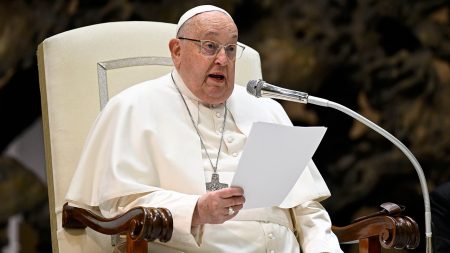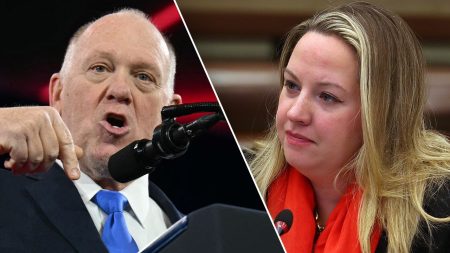The year 2025 is poised to witness a significant shift in the American political landscape, with power potentially devolving from the coastal elites to the heartland. This realignment is reflected in the prospective leadership under a returning Trump administration, which features prominent figures from the Dakotas in key positions. The nomination of South Dakota Governor Kristi Noem to head Homeland Security and North Dakota Governor Doug Burgum as Secretary of the Interior signals a renewed focus on the concerns and perspectives of middle America. Coupled with Senator John Thune of South Dakota’s selection as Senate Majority Leader and Senator Mike Rounds’ anticipated leadership in cybersecurity, this concentration of power in the region suggests a deliberate effort to elevate the voices of the heartland in national policy.
This shift is welcomed by many in the region who have long felt overlooked by the coastal establishment. Dr. José-Marie Griffiths, President of Dakota State University, a prominent cybersecurity expert who has advised both Governors Noem and Burgum, sees this change as a long-overdue recognition of the region’s contributions and potential. She believes this new leadership will ensure that the perspectives of the heartland are not only heard but also genuinely considered in national decision-making. This sentiment echoes a growing national conversation about bridging the divide between urban centers and rural areas, addressing the economic disparities and ensuring that opportunities are accessible to all Americans regardless of geographic location.
The potential impact of this shift extends beyond mere representation. With leaders deeply rooted in the heartland, there is an expectation of a more focused approach on issues critical to the region, such as agriculture, energy, and cybersecurity. Governor Noem’s potential leadership at Homeland Security, coupled with her understanding of the cybersecurity challenges facing the agricultural sector, is seen as a positive step towards strengthening national security in this vital area. Similarly, Governor Burgum’s role at the Interior Department and his involvement with the Energy Council is anticipated to enhance the United States’ leadership in emerging technologies, particularly within the energy sector.
This regional empowerment resonates with the broader national discourse on redistributing power and resources. Representative Ro Khanna’s (D-CA) advocacy for expanding Silicon Valley’s economic model to underserved areas, including his visits to Kentucky and West Virginia, highlights a bipartisan acknowledgement of the need for a more equitable distribution of economic opportunities. The idea of bringing high-tech jobs to rural areas aligns with the desire of many young people in the heartland to remain in their communities while pursuing fulfilling careers, a sentiment echoed by Dr. Griffiths. This focus on regional economic development promises to not only revitalize these communities but also address the brain drain that has often plagued these areas.
The proposed relocation of federal agencies, like the U.S. Forest Service, to areas more directly impacted by their work, further underscores the commitment to decentralizing power. Representative Dusty Johnson (R-SD) argues that moving the Forest Service to Rapid City, South Dakota, would bring the agency closer to the resources it manages and the communities it serves. This proposal aligns with the broader philosophy of bringing governance closer to the people and fostering a more responsive and effective bureaucracy. It reflects a recognition that local expertise and community involvement are vital for effective policy implementation.
The potential rise of heartland leadership in 2025 is not simply about shifting political power but also about realigning national priorities. Advocates like Mark Jorritsma of the North Dakota Family Alliance see it as an opportunity to reinforce traditional values and prioritize the concerns of families and communities. This emphasis on faith, family, and freedom, coupled with a focus on the importance of agriculture and responsible resource management, reflects a desire to shape national policy based on the values and priorities that resonate deeply within the heartland. This realignment could mark a significant departure from the perceived coastal elitism and bring a fresh perspective to national governance, emphasizing the needs and values of a broader spectrum of American society.










